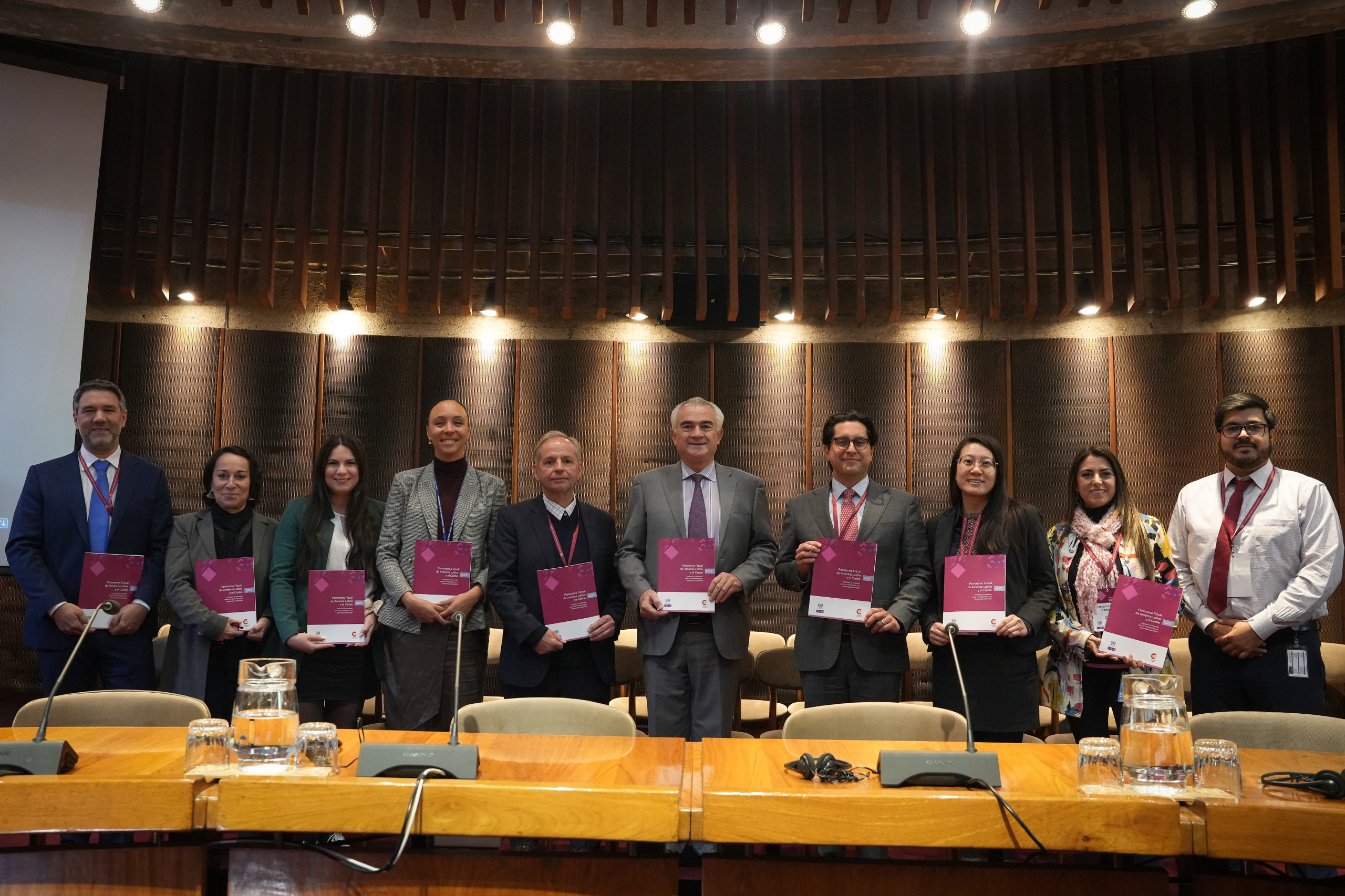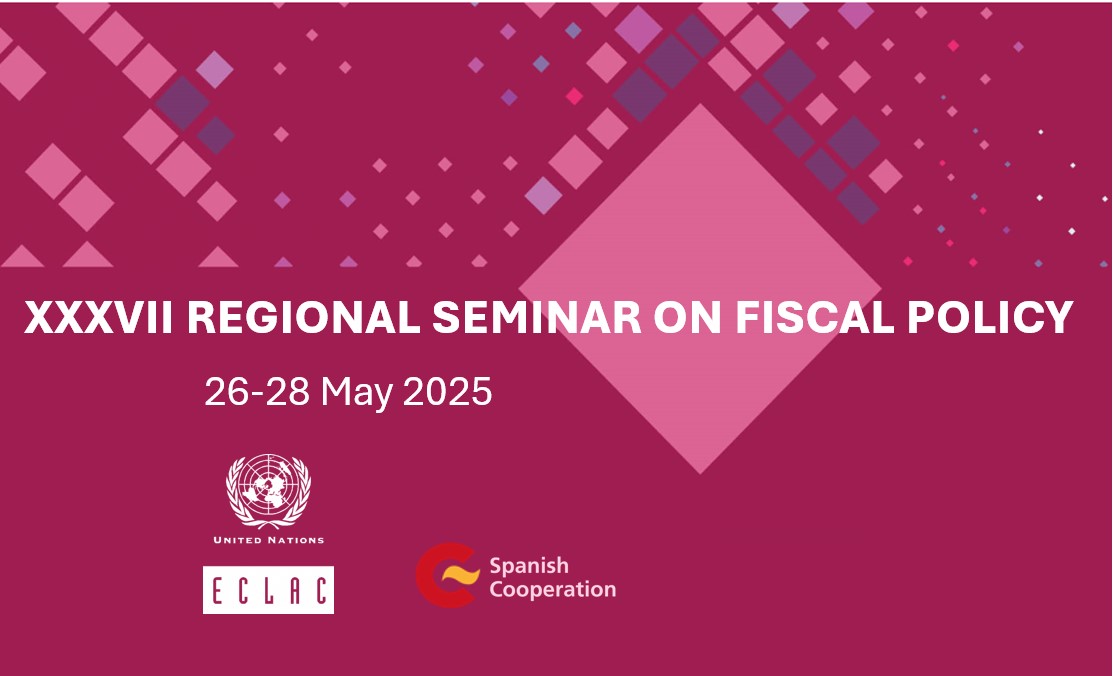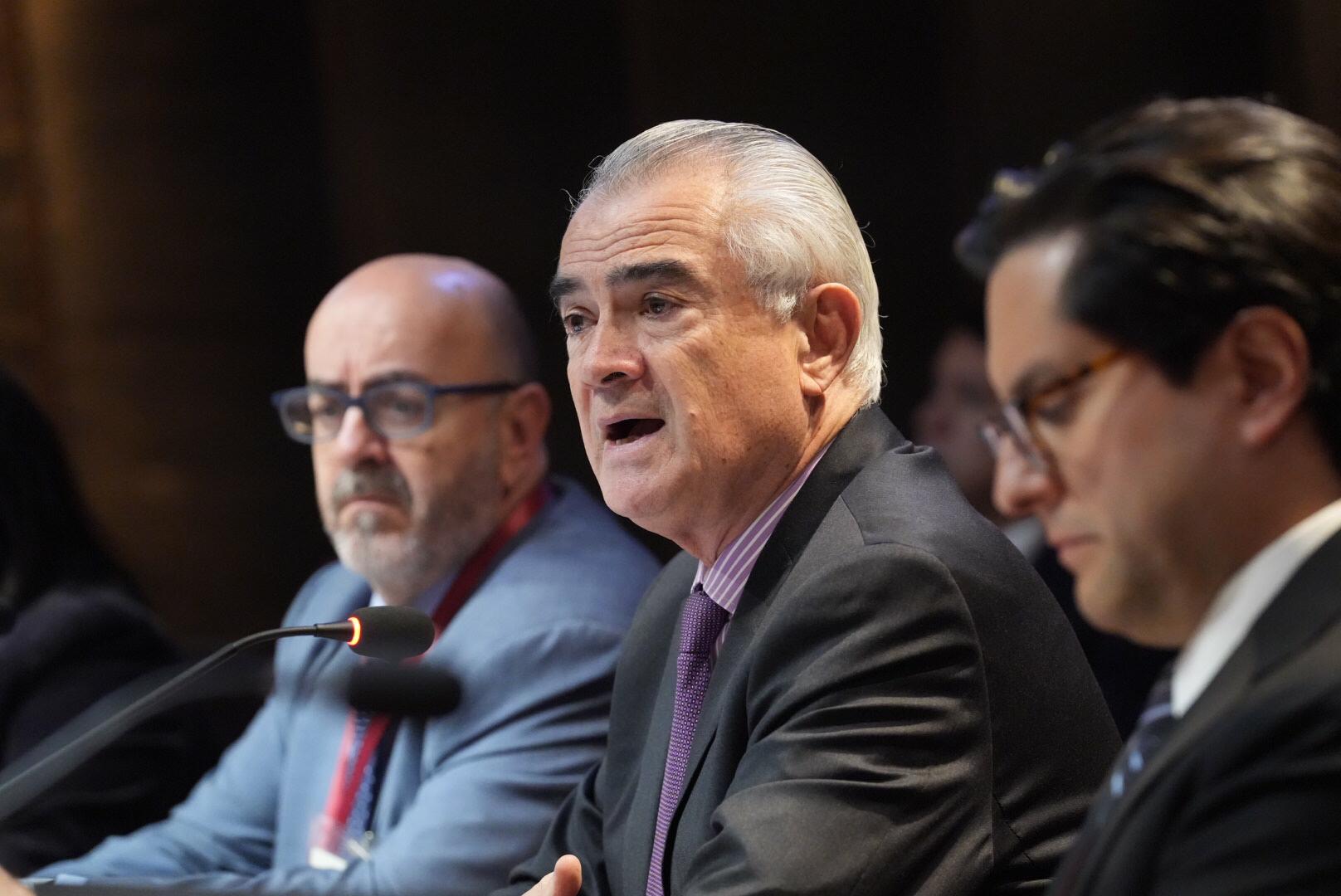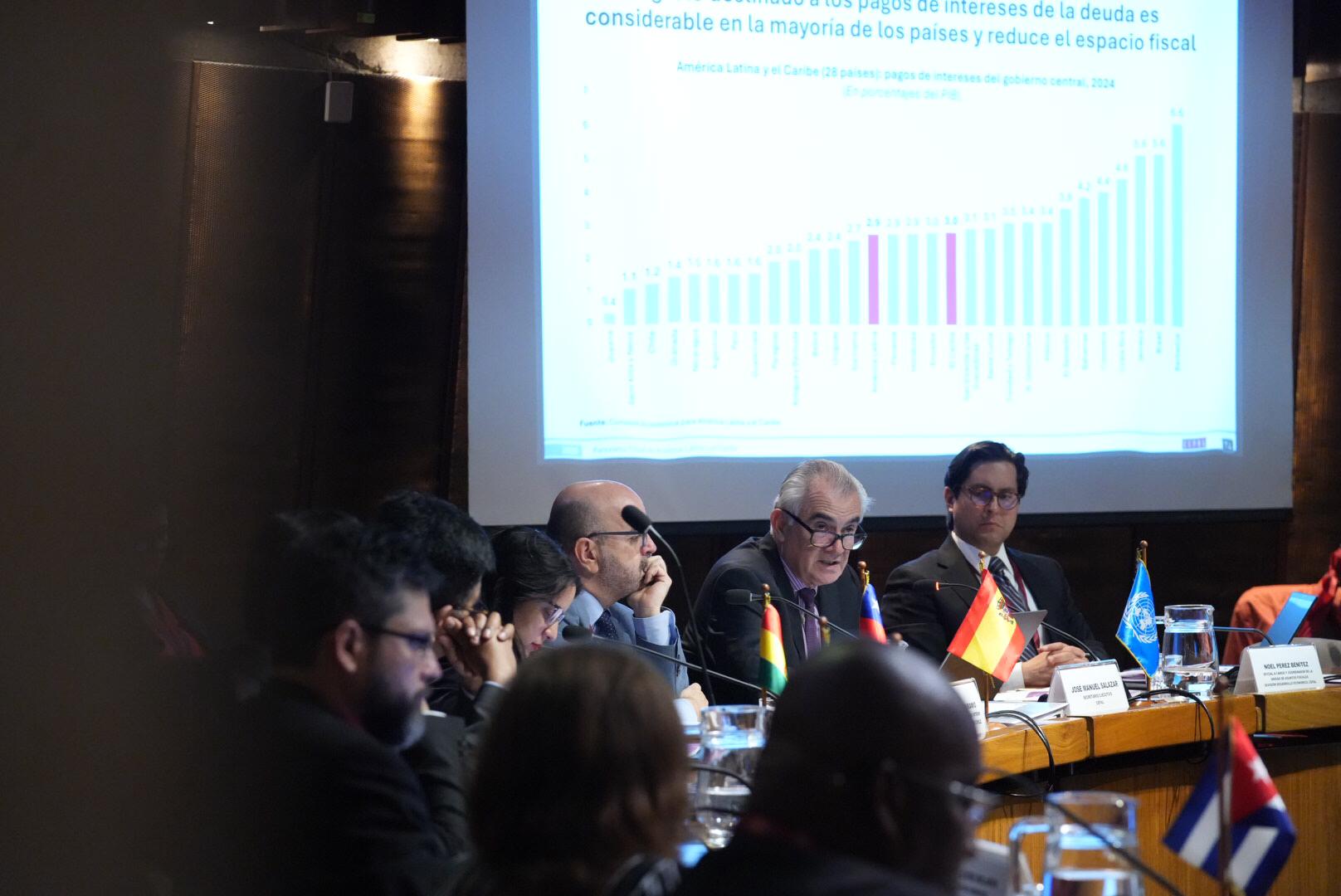Fiscal Policy is a Key Tool for Driving the Structural Transformations Needed in Latin America and the Caribbean
Work area(s)

The XXXVII Regional Seminar on Fiscal Policy came to a close this Wednesday at the headquarters of the Economic Commission for Latin America and the Caribbean (ECLAC) in Santiago, Chile, with a call by participating authorities and experts to mobilize financing in order to expand fiscal space in the region’s countries.
More than 80 people attended this traditional event – organized by ECLAC with the sponsorship of the Spanish Agency for International Development Cooperation (AECID) and with the support of the Inter-American Development Bank (IDB) Group, the Organisation for Economic Co-operation and Development (OECD), the World Bank and the International Monetary Fund (IMF) – which has brought together government authorities, specialists and members of civil society and academia for more than 30 years to discuss the fiscal policy challenges facing the region’s countries. On this occasion, the participants agreed that fiscal policy is a key tool for driving the structural transformations that Latin America and the Caribbean needs to be able to escape the development traps in which it is caught.
As ECLAC’s Executive Secretary, José Manuel Salazar-Xirinachs, stated during the event’s opening segment on Monday, May 26, the region is facing a development crisis characterized by three traps: one of low capacity for growth and transformation; another of high inequality, low social mobility and weak social cohesion; and a third trap of low institutional capacity and weak governance. “This first trap of low growth capacity is one of the causes of the reduced fiscal space that also characterizes the majority of the region’s countries, in addition to their high levels of indebtedness and the rising cost of debt service,” he explained.
“The combination of low capacity for growth and limited fiscal space is a toxic combination for tackling the challenges and the necessary transformations, such as increasing public and private investment, improving productivity, and driving the social and productive transformations that would enable us to overcome the development traps and gaps that we are facing,” the senior United Nations official emphasized.
“In other words, limited fiscal space, ongoing deficits, high public debt levels and the higher cost of debt are all conspiring against our countries’ ability to use fiscal policy as a tool for development,” Salazar-Xirinachs added.
Also speaking at the event’s inauguration were Luis Mateos Paramio, acting Commercial Attaché for Spain's Embassy in Chile, and Javiera Martínez, Director of the Budget Office at Chile’s Finance Ministry. They underscored that in the current global context, fiscal policy serves as the policy lever needed to make progress on fulfilling the commitments established by the 2030 Agenda, and they called for promoting an active, efficient and transformative fiscal policy that would not only enable macroeconomic stability but also guide efforts to achieve more inclusive, productive and sustainable development.
At the seminar, ECLAC’s Executive Secretary presented the Fiscal Panorama of Latin America and the Caribbean 2025, an annual publication in which the United Nations regional organization examines topics of relevance to the regional debate on fiscal policy. In addition to analyzing the evolution of the main fiscal trends in the previous year (2024), the report explores issues such as tax incentives for fostering environmental sustainability and the macroeconomic effects of public investment in the region.
According to the publication, deficits continue to persist in Latin America, with limited fiscal space in a context of higher financing costs. In 2024, revenue and expenditures held steady, while public debt decreased versus 2023 but remained at high levels, averaging 51.2% of GDP. The report adds that an active fiscal policy with a focus on investment is essential for driving the structural transformations that Latin America and the Caribbean needs. And in that regard, ECLAC has proposed prioritizing public action to galvanize driving sectors of the economy that would bring about a productive transformation in the region, including the pharmaceutical and life sciences industry; the exportation of “modern” services (enabled by Information and Communications Technologies); the energy transition, renewable energies, green hydrogen and lithium; electromobility; the circular economy; and the bioeconomy, to mention a few.
“Through numerous instruments (revenue-expenditures-financing), fiscal policy is essential for bolstering economic growth, promoting equity, and supporting economic stability and environmental sustainability. We must create spaces for social dialogue, ensure transparency in resource management, and promote greater effectiveness and coherence in public policies,” José Manuel Salazar-Xirinachs said upon presenting the document.
The 2025 version of the report Revenue Statistics in Latin America and the Caribbean was also unveiled during the XXXVII Fiscal Seminar. This is a joint publication prepared by ECLAC, the OECD Centre for Tax Policy and Administration, the OECD Development Centre, the Inter-American Center of Tax Administrations (CIAT) and the IDB Group.
The report indicates that tax revenue in the region decreased as a share of GDP in 2023 amid a slowdown in economic activity in the region and a decline in global commodity prices (see this special press release).
During six high-level sessions, the seminar’s participants addressed fiscal policy challenges in a context of low growth and great uncertainty; expenditures and public investment for reducing structural gaps; tax policies to reduce inequality and promote environmental sustainability; and the mobilization of financing to expand fiscal space. In this last session, they stressed the importance of the Fourth International Conference on Financing for Development, which will be held in Seville (Spain) on June 30-July 3, 2025, since it represents a key opportunity for forging agreements to improve the international financial architecture and make it more effective in supporting countries’ efforts to expand their fiscal space and to foster needed economic, social and environmental investments, by both the public and private sectors.
At the event’s closing segment, ECLAC’s Executive Secretary stated that “the macroeconomic and fiscal situation we are facing in the region is restricted and complex, and we hope that the issues we have discussed here can serve as a seed for continuing to develop knowledge and can contribute to guiding fiscal policy decisions in the region amid this complex scenario.”
Related content

XXXVII Regional Seminar on Fiscal Policy
The XXXVII Regional Seminar on Fiscal Policy is organized by the Executive Secretary of theEconomic Commission for Latin America and the Caribbean (ECLAC) through the EconomicDevelopment…

XXXVII Seminario Regional de Política Fiscal
Palabras de inauguración de José Manuel Salazar-Xirinachs, Secretario Ejecutivo de la CEPAL.

Panorama Fiscal de América Latina y el Caribe 2025
Presentación del Secretario Ejecutivo de la CEPAL, José Manuel Salazar-Xirinachs, realizada en el marco del XXXVII Seminario Regional de Política Fiscal.
Related link(s)
Country(ies)
- Latin America and the Caribbean
Contact
Public Information Unit
- prensa@cepal.org
- (56 2) 2210 2040